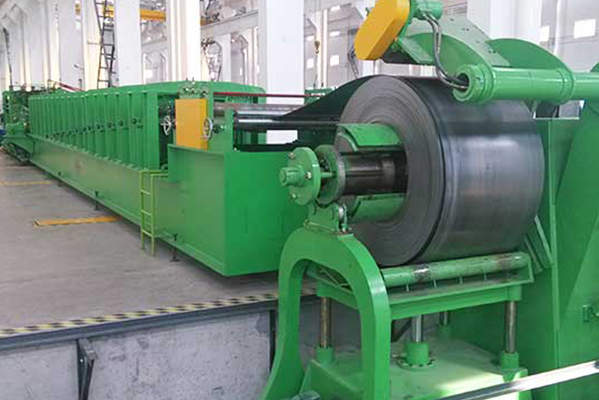Navigation Menu
Contact Us
- Email:
- info@wxavatar.com
- Address:
- Yurong Village, Yuqi Street, Huishan District, Wuxi, China.
Release Date:Apr 17, 2025 Visit:97 Source:Roll Forming Machine Factory
A metal rolling machine is a mechanical device used to shape metal by passing it through one or more pairs of rolls. This process reduces thickness, improves surface finish, and enhances mechanical properties. Rolling machines are widely used in manufacturing, construction, and metalworking industries due to their efficiency and precision.

Types of Metal Rolling Machines
1.Hot Rolling Machines – These operate at high temperatures, making metal easier to deform. They are commonly used for large-scale production of sheets, plates, and structural components.
2.Cold Rolling Machines – These work at or near room temperature, producing smoother surfaces and tighter tolerances. Cold rolling is often used for making thin sheets, strips, and foils.
3.Plate Rolling Machines – Designed to bend metal plates into cylindrical or conical shapes, these machines are essential in producing tanks, pipes, and pressure vessels.
4.Section Rolling Machines – Used for shaping metal into specific cross-sectional profiles, such as I-beams, angles, and channels.
Key Components
Rolls – The primary tools that apply pressure to deform the metal.
Frame – Provides structural support to withstand rolling forces.
Drive System – Powers the rolls, typically using electric motors and gearboxes.
Control System – Ensures precise adjustments for thickness and speed.
Applications
Metal rolling machines are used in various industries, including:
Automotive (manufacturing body panels and chassis components)
Aerospace (producing high-strength alloy sheets)
Construction (fabricating beams and columns)
Appliances (forming metal casings and parts)
Advantages
Consistent Quality – Ensures uniform thickness and smooth finishes.
High Production Rates – Capable of processing large volumes efficiently.
Versatility – Can handle different metals, including steel, aluminum, and copper.

Conclusion
Metal rolling machines play a crucial role in modern manufacturing by transforming raw metal into usable forms. Their ability to produce precise, high-quality products makes them indispensable in industrial applications. Continuous advancements in automation and control systems further enhance their performance and reliability.